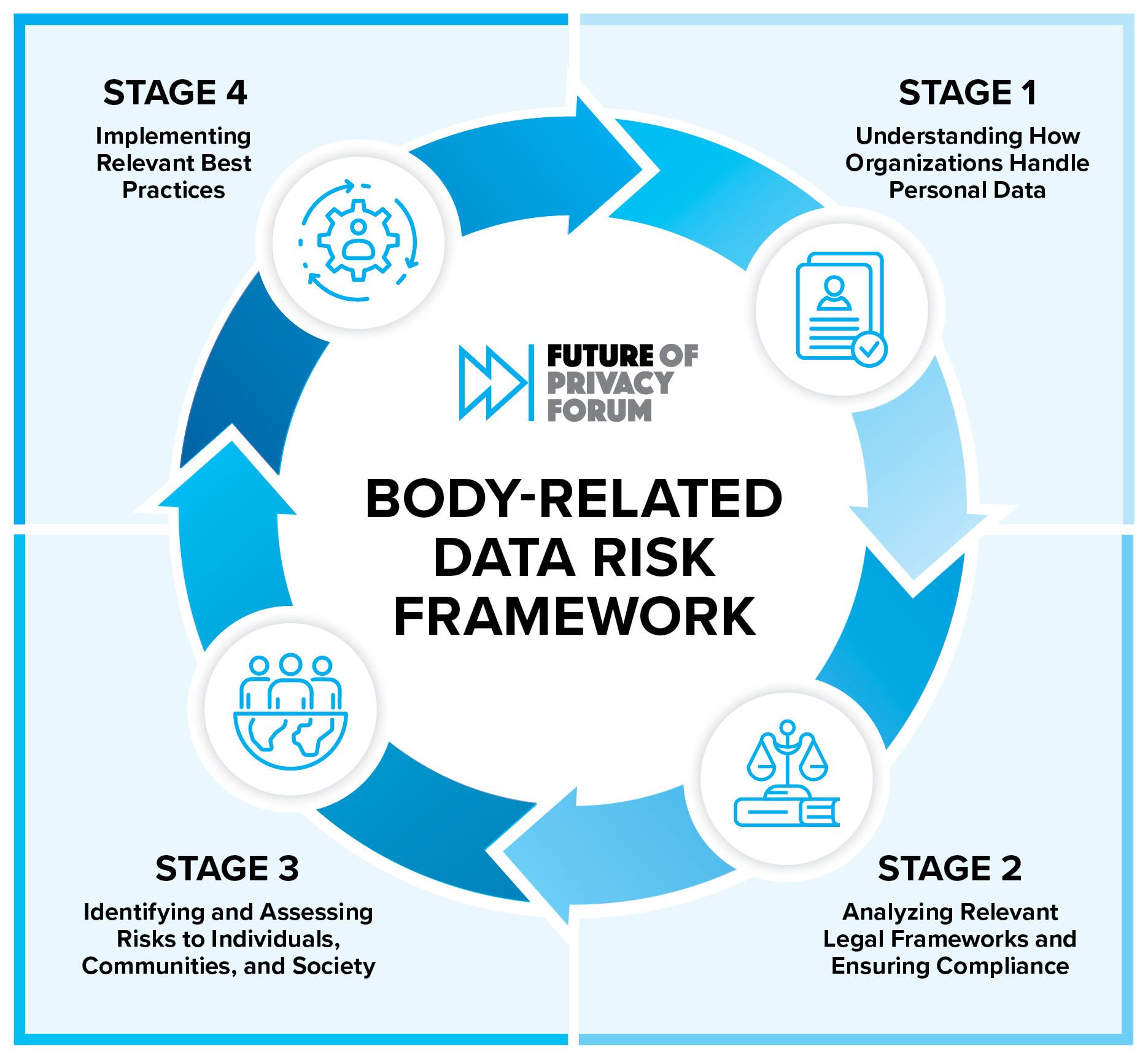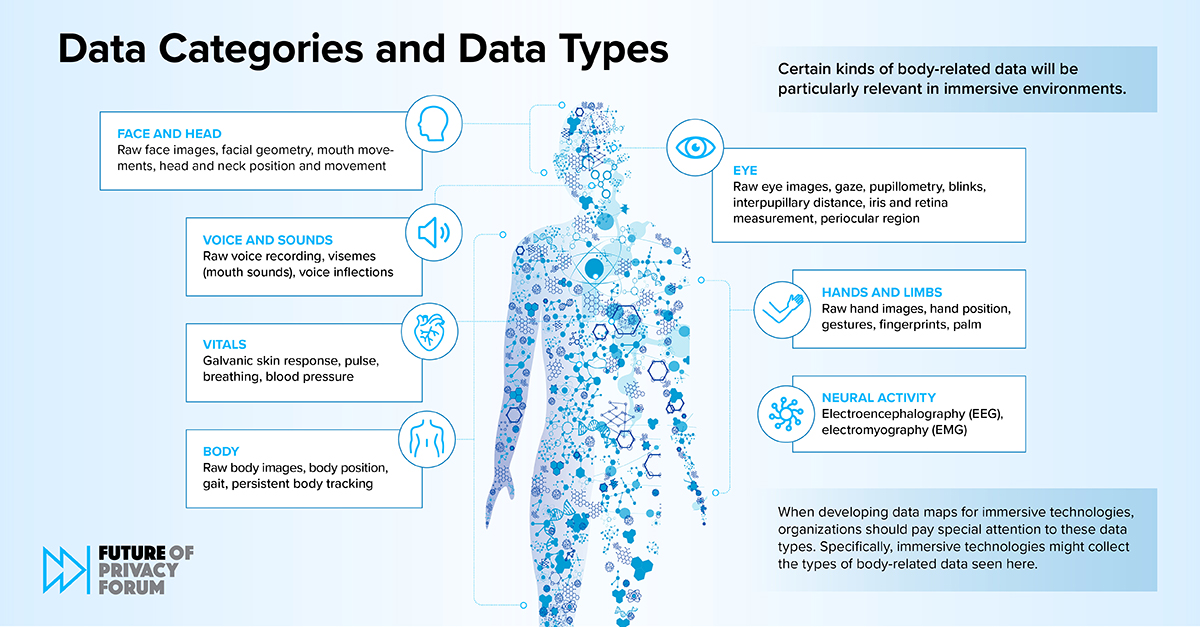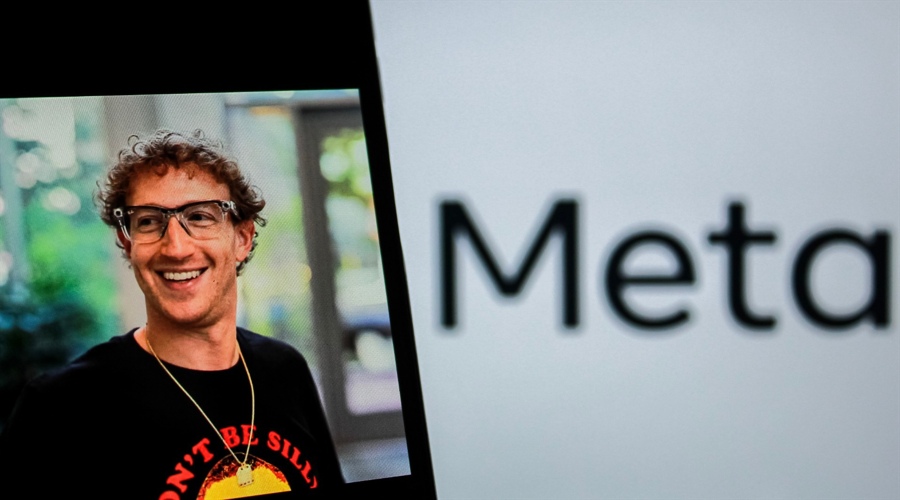The Way forward for Privateness Discussion board revealed a framework for biometric knowledge laws for immersive applied sciences on Tuesday.
The FPF’s Threat Framework for Physique-Associated Knowledge in Immersive Applied sciences report discusses finest practices for gathering, utilizing, and transferring body-related knowledge throughout entities.
#NEW: @futureofprivacy releases its ‘Threat Framework for Physique-Associated Knowledge in Immersive Applied sciences’ by authors @spivackjameson & @DanielBerrick.
This evaluation assists organizations to make sure they’re dealing with body-related knowledge safely & responsibly.https://t.co/FC1VOsaAFe
— Way forward for Privateness Discussion board (@futureofprivacy) December 12, 2023
Organisations, companies, and people can incorporate the FPF’s observations as suggestions and a basis for facilitating protected, accountable prolonged actuality (XR) insurance policies. This pertains to entities requiring massive quantities of biometric knowledge in immersive applied sciences.
Moreover, these following the rules of the report can apply the framework to doc causes and methodologies for dealing with biometric knowledge, adjust to legal guidelines and requirements, consider dangers related to privateness and security, and moral issues when gathering knowledge from units.
The framework applies not solely to XR-related organisations but in addition to any establishment leveraging applied sciences depending on the processing of biometrics.
Jameson Spivack, Senior Coverage Analyst, Immersive Applied sciences, and Daniel Berrick, Coverage Counsel, co-authored the report.
Your Knowledge: Dealt with with Care
With a view to perceive the best way to deal with private knowledge, organisations should establish potential privateness dangers, guarantee compliance with legal guidelines, and implement finest practices to spice up security and privateness, the FPF defined.

Based on Stage One of the framework, organisations can achieve this by:
- Creating knowledge maps that define their knowledge practices linked to biometric data
- Documenting their use of knowledge and practices
- Figuring out pertinent stakeholders, direct and third-party, affected by the organisation’s knowledge practices
Corporations would analyse relevant authorized frameworks in Stage Two to make sure compliance. This might contain corporations gathering, utilizing, or transferring “body-related knowledge” impacted by US privateness legal guidelines.
To conform, the framework recommends that organisations “perceive the person rights and enterprise obligations” relevant to “present complete and sectoral privateness legal guidelines,” it learn.
Organisations must also analyse rising legal guidelines and laws and the way they might impression “body-based knowledge practices.”
In Stage Three, corporations, organisations, and establishments ought to establish and assess dangers to others. It defined that this contains the people, communities, and societies they serve.
It stated that privateness dangers and harms may derive from knowledge “used or dealt with particularly methods, or transferred to explicit events,” it stated.
It added that authorized compliance “might not be sufficient to mitigate dangers.”
With a view to maximise security, corporations can comply with a number of steps to guard knowledge, similar to proactively figuring out and lowering dangers related to knowledge practices.
This might contain impacts on the next:
- Identifiability
- Use to make key choices
- Sensitivity
- Companions and different third-party teams
- The potential for inferences
- Knowledge retention
- Knowledge accuracy and bias
- Consumer expectations and understanding
After evaluating a gaggle’s knowledge use coverage, organisations can assess the equity and ethics behind its knowledge practices, primarily based on recognized dangers, it defined.

Lastly, the FPF framework beneficial the implementation of finest practices in Stage 4, which concerned a “variety of authorized, technical, and coverage safeguards organisations can use.
It added this might assist organisations preserve up to date with “statutory and regulatory compliance, reduce privateness dangers, and make sure that immersive applied sciences are used pretty, ethically, and responsibly.”
The framework recommends that organisations deliberately implement finest practices by comprehensively “touching all components of the info lifecycle and addressing all related dangers.”
Organisations may collaboratively implement finest practices utilizing these “developed in session with multidisciplinary groups inside a corporation.”
These would contain authorized product, engineering, belief, security, and privacy-related stakeholders.
Organisations can shield their knowledge by:
- Localising and processing knowledge on units and storage
- Minimising knowledge footprints
- Regulating or implementing third-party administration
- Providing significant discover and consent
- Preserving knowledge integrity
- Offering consumer controls
- Incorporating privacy-enhancing applied sciences
Following these finest practices, organisations may consider finest practices and suitably align them as a coherent technique. Afterwards, they may assess the perfect practices on an ongoing foundation to keep up efficacy.
EU Proceeds with Synthetic Intelligence (AI) Act
The information comes proper after the European Union moved ahead with its AI Act, which the FPF states can have a “broad extraterritorial impression.”
Presently below negotiations with member-states, the laws goals to guard residents from dangerous and unethical use of AI-based options.
Political settlement was reached on the EU’s #AIAct, which can have a broad extraterritorial impression. If you need to achieve insights into key authorized implications of the regulation, be a part of @kate_deme for an in-depth FPF coaching tomorrow at 11 am ET.
: https://t.co/weVgDdsvRh— Way forward for Privateness Discussion board (@futureofprivacy) December 11, 2023
The organisation is providing steerage, experience, and coaching for corporations after the Act prepares to enter drive. This has led to one of many largest modifications in knowledge privateness coverage because the introduction of the Normal Knowledge Safety Regulation (GDPR) in Might 2016.
The European Fee acknowledged it desires to “regulate synthetic intelligence (AI)” to make sure improved circumstances for utilizing and rolling out the know-how.
It stated in an announcement,
“In April 2021, the European Fee proposed the primary EU regulatory framework for AI. It says that AI programs that can be utilized in numerous purposes are analysed and categorised in accordance with the danger they pose to customers. The completely different danger ranges will imply kind of regulation. As soon as accredited, these would be the world’s first guidelines on AI”
Based on the Fee, it goals to approve the Act by the top of the 12 months.
Biden-Harris Government Order on AI
In late October, the Biden-Harris administration carried out an govt order on the regulation of AI. The Authorities’s Government Order on Secure, Safe, and Reliable Synthetic Intelligence goals to safeguard residents all over the world from the dangerous results of AI programmes.
Enterprises, organisations, and specialists might want to adjust to the brand new laws for “builders of essentially the most highly effective AI programs” to share their security assessments with the US Authorities.
Responding to the Plan, the FPF stated it was “extremely complete” and provided a “entire of presidency strategy and with an impression past authorities businesses.”
It continued in its official assertion,
“Though the manager order focuses on the federal government’s use of AI, the affect on the personal sector might be profound because of the in depth necessities for presidency distributors, employee surveillance, schooling and housing priorities, the event of requirements to conduct danger assessments and mitigate bias, the investments in privateness enhancing applied sciences, and extra”
The assertion additionally known as on lawmakers to implement “bipartisan privateness laws.” Doing so was “a very powerful precursor for protections for AI that impression weak populations.”
UK Hosts AI Safety Summit
Moreover, the UK additionally hosted its AI Safety Summit on the iconic Bletchley Park, the place world-renowned scientist Alan Turing cracked the Nazi’s World Conflict II-era Enigma cryptography.
On the world-class occasion, a number of the trade’s top-level specialists, executives, corporations, and organisations gathered to stipulate protections to control AI.
This has included the US, UK, EU, and UN governments, the Alan Turing Institute, The Way forward for Life Institute, Tesla, OpenAI, and plenty of others. The teams mentioned strategies to create a shared understanding of the dangers of AI, collaborate on finest practices, and develop a framework for AI security analysis.
The Battle for Knowledge Rights
The information comes as a number of organisations enter contemporary alliances with a view to sort out ongoing issues over using digital, augmented, and blended actuality (VR/AR/MR), AI, and different rising applied sciences.
For instance, Meta Platforms and IBM launched a large alliance united to develop finest practices for synthetic intelligence, biometric knowledge, and to assist create regulatory frameworks for tech corporations worldwide.
The International AI Alliance hosts greater than 30 organisations, corporations, and people from throughout the worldwide tech neighborhood and contains tech giants similar to AMD, HuggingFace, CERN, The Linux Basis, and others.
Moreover, organisations just like the Washington, DC-based XR Affiliation, Europe’s XR4Europe alliance, the globally-recognised Metaverse Requirements Discussion board, and the Gatherverse, amongst others, have contributed enormously to the implementation of finest practices for these concerned in constructing the way forward for spatial applied sciences.





















